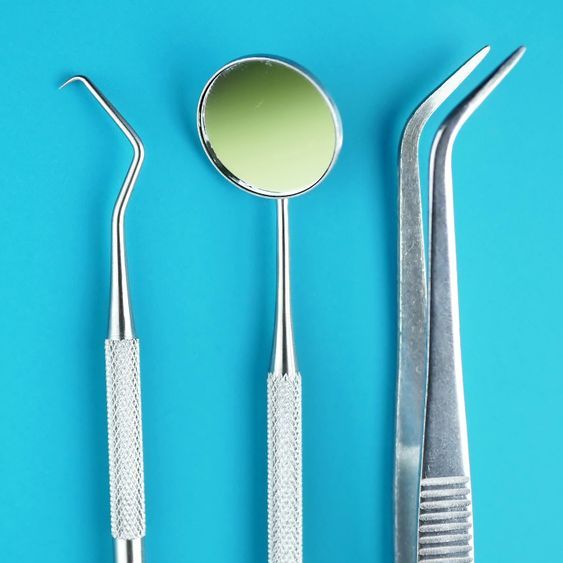Frequently Asked Questions
-
How long do dentures last?
The lifespan of full dentures can vary, but with proper care and regular maintenance, they typically last around 5-10 years. It's important to visit your dentist or denture clinic for periodic check-ups to assess the condition of your dentures and ensure their longevity.
-
How do I look after dentures?
To maintain dentures, it's essential to clean them daily using a soft-bristle brush and regular toothpaste. Rinse them after meals, handle them with care and store them in water when not in use.
-
What are dentures made of?
Dentures are most commonly made from acrylic resin—a durable and lightweight material that closely resembles the appearance of natural teeth and gums. The base of the denture is typically made of acrylic, while the teeth themselves are often also made of acrylic; they can be porcelain although this is being phased out of the industry.
Alternative base materials are available for partial dentures:
Metal - a chromium cobalt alloy that is stronger and thinner than acrylic, but cannot be altered easily.
Valplast - A nylon composite material that is more flexible and thinner than acrylic and does not require wire retainers; it cannot be altered easily.
These materials can be chosen for their cost, durability, aesthetics and functional properties.
-
How long does it take to make dentures?
The time it takes to make partial dentures can vary depending on factors such as the complexity of the case and the specific requirements of the patient. The process usually takes several weeks, allowing for proper examination, impressions, design, fabrication and fitting of the dentures.
-
How durable are dentures?
Dentures are designed to be durable and withstand the normal forces of chewing and speaking. However, their longevity can be influenced by factors such as oral hygiene, maintenance, and wear and tear. With proper care and regular check-ups, partial dentures can provide long-lasting functionality.
-
How long does it take to make dentures?
The time it takes to make dentures can vary depending on factors such as the complexity of the case and the specific requirements of the patient. The process usually take several weeks, allowing for proper examination, impressions, design, fabrication and fitting of the dentures.
-
How durable are dentures?
Partial dentures are designed to be durable and withstand the normal forces of chewing and speaking. However, their longevity can be influenced by factors such as oral hygiene, maintenance and wear and tear. With proper care and regular check-ups, partial dentures can provide long-lasting functionality.
-
How often do I need to replace dentures?
Dentures should typically be replaced every 5-10 years. However, the specific timeframe for replacement can vary depending on factors such as wear and tear, changes in oral health, and individual circumstances. Check-ups as needed can help determine when dentures need to be replaced based on their condition and fit.
-
What is denture relining?
Denture relining is a procedure that involves adding a new layer of material to the fitting surface of a denture to improve its fit and comfort. It helps to address changes in the shape of the jawbone and gums over time, ensuring a more snug fit of the denture.
-
How often should I have my dentures cleaned by a prosthetist?
It is recommended to have your dentures professionally cleaned by a prosthetist once you cannot successfully remove visible stains and plaque yourself. Regular cleaning helps to ensure good denture hygiene with the thorough removal of stain and plaque buildup.
-
How do I know whether my dentures require an adjustment?
If you experience discomfort, sore spots, difficulty chewing or notice changes in the fit of your dentures, it may indicate the need for an adjustment.
Schedule a denture appointment today
What We Do
Our Address
AHPRA - DEN0001042807
ADPA - N0031
Toukley Denture Clinic - BN98412277
ABN -
22 000 485 405





